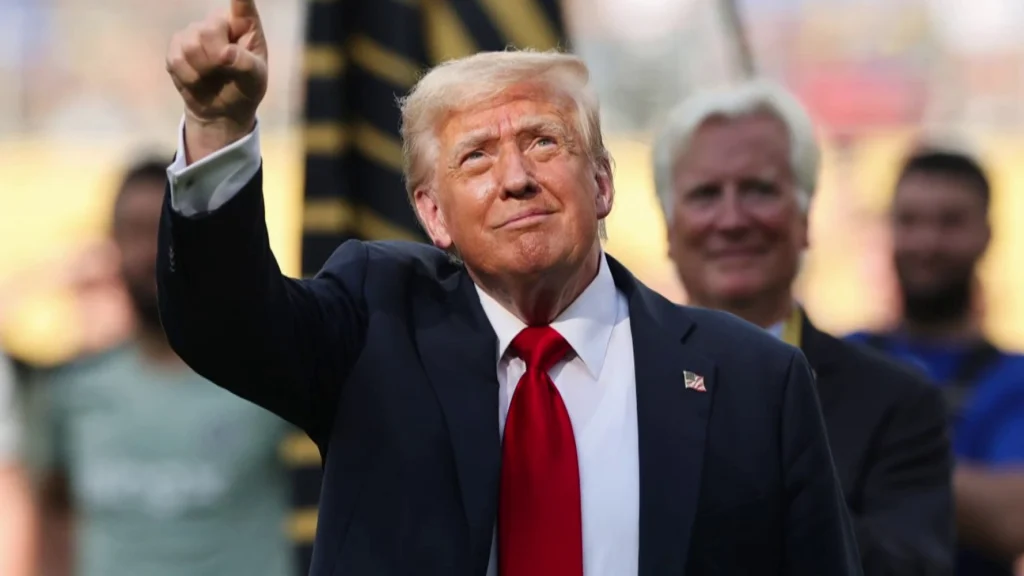In the high-stakes world of presidential politics, every detail about a candidate is examined, from their policies to their past speeches. But now, a recent revelation about Donald Trump’s health has brought a different, more personal issue to the forefront: the physical fitness required to lead a nation. The news that the former president has been diagnosed with a chronic venous condition is more than a medical update; it is a profound reminder that the job of a president is not just a mental or political challenge, but a grueling physical test.
What Does This Diagnosis Mean?
A chronic venous condition is a long-term issue related to the veins, most often in the legs. In simple terms, it means the veins have trouble sending blood back to the heart. This can lead to symptoms like swelling, pain, skin changes, and, in more serious cases, can increase the risk of blood clots. It is a manageable condition, but it is also a chronic one—meaning it is something that must be dealt with for the rest of a person’s life.
This is not a minor detail. The presidency is arguably the most demanding job on the planet. It involves sleepless nights, immense stress, constant travel across time zones, and the mental burden of making decisions that affect millions of lives. The question is not whether a person can serve with a chronic health condition—many leaders have—but rather how that condition might impact their ability to perform under the immense and relentless pressure of the office.
The Public’s Right to Know
This situation brings us to a fundamental question in any democracy: how much do we, the public, have a right to know about the health of our leaders? A candidate’s medical history is, of course, a private matter. But when that person is asking for the responsibility of leading a country, their physical well-being becomes a matter of legitimate public interest. We need to be confident that our leaders have the stamina and resilience to handle the job.
Historically, the health of presidents has often been hidden from the public. Leaders like Franklin D. Roosevelt and John F. Kennedy concealed serious medical conditions. But in today’s world of instant information, such secrecy is no longer acceptable. Transparency about a candidate’s health is now a key part of building trust with the electorate.
“Voters aren’t just choosing a leader; they’re hiring someone for the most demanding job on Earth. Their physical health is a key part of their resume.” — A political historian

The Transparency Test
Political campaigns often try to control the narrative around a candidate’s health. They release carefully worded letters from doctors that describe their candidate in glowing terms, often using vague phrases like “excellent health” or “fit to serve.” These statements are designed to reassure voters, but they often reveal very little.
The revelation of Trump’s specific condition, therefore, is significant. It moves the conversation from generalities to specifics. It forces a more honest discussion about what it takes to be president and whether a candidate’s physical condition could impact their leadership. This is not about disqualifying a candidate; it is about having an open and honest conversation.
A Challenge for All Candidates
This is not an issue that applies only to Donald Trump. The question of health and fitness for office is a universal one that should be asked of every serious candidate, regardless of their age or political party. President Joe Biden’s age and physical stamina have been a constant topic of discussion throughout his presidency. Any candidate, young or old, who seeks the highest office should be prepared to be transparent about their physical well-being.
The focus should be on a candidate’s ability to function, not just their diagnosis. Can they handle the travel? Can they endure the stress? Can they remain clear-headed during a crisis? These are the practical questions that voters should be asking.
Conclusion: Health as a Pillar of Leadership
In the end, the news of Donald Trump’s chronic venous condition is a catalyst for a much larger and more important conversation. It reminds us that a strong leader needs more than just a sharp mind and a clear vision; they also need the physical endurance to see that vision through.
The demand for transparency regarding the health of our leaders is not about sensationalism or political attack. It is a reasonable expectation from a public that is entrusting someone with the immense responsibilities of the presidency. As we move forward, we must insist that all candidates meet this standard of openness. A leader’s health is not just their own business; in a democracy, it is ours as well.
Stay woke. Stay tuned. Stay with AKEWE NEWS.